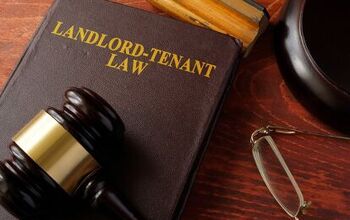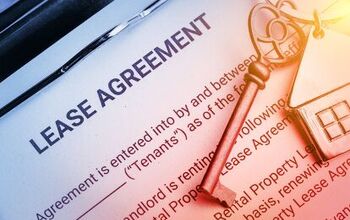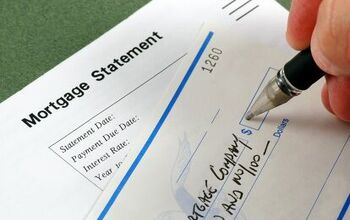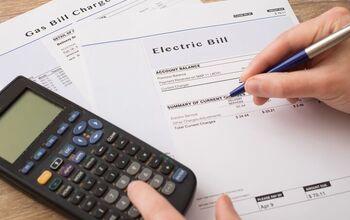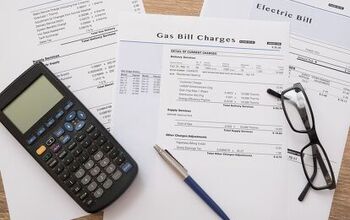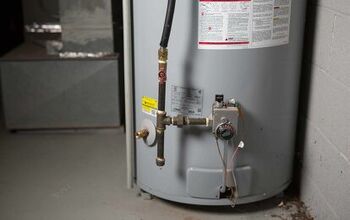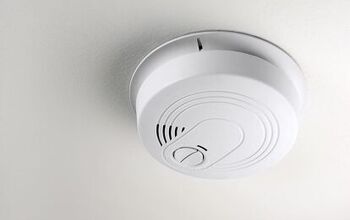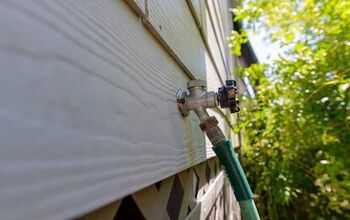Landlord Not Responding To Messages? (Here's What You Can Do)

In an ideal situation, your landlord would promptly respond to your texts and immediately jump on any needed repairs. Unfortunately, this type of landlord-tenant relationship sometimes seems to be few and far between. So, what can you do if you’ve made every effort to reach out and your landlord doesn’t respond?
Your landlord is obligated to respond if you’re experiencing an issue that compromises the safety or habitability of the property. If you’ve already reached out through text, call, and email, be sure to contact your landlord with a written letter. Sending registered mail is a wise choice; keep the receipt, and document the issue and all attempts to make contact.
This article will discuss when landlords are required to respond and how best to get a hold of them. It will also talk about potential steps to take if your landlord continually fails to respond to you. We’ll also cover whether the tenant or landlord is responsible for taking care of various types of necessary repairs.
Do You Need to Hire Movers?
Get free, zero-commitment quotes from pro contractors near you.

When Are Landlords Obligated To Respond?
Landlords are required to provide a safe and habitable place for their tenants to live. Therefore, anything that is essential to tenants’ health and safety warrants a response.
Your landlord is obligated to respond to any issues with water, heating, and electricity. This also applies to problems with fungus and mold, as well as insect and vermin infestations.
If your landlord isn’t responding to your messages, let them know that you’re aware of your rights. Be sure to inform them that the current condition of the rental property violates safety and/or habitability standards.
What Is The Best Way To Get In Touch With Your Landlord?
Have you already reached out through texts, calls, emails, and social media messages? Then it’s time to contact your landlord through snail mail. If the issue becomes a dispute, it’s essential to have written proof showing you informed the landlord of the problem.
Generally, emails and texts don’t count as “official written notice.” However, the terms of your lease might explain which types of communication constitute written notice. If your lease doesn’t mention specific communication methods, then a written letter is the most commonly accepted option.
Ensuring Your Landlord Has Received Your Communications
If you’re concerned that your landlord is actively ignoring you, then it’s worth it to pay for registered mail. This type of mail requires the recipient to sign and date the receipt when they receive the envelope. Be sure to save the registered mail receipt since it can be used as documentation.
How To Keep Records Of Attempts To Communicate
When your landlord isn’t responding, it’s necessary to keep detailed written records of the situation. Write down the date you first noticed the problem, and note every attempt to contact your landlord. You’ll also want to take lots of date-stamped photos of the issue for additional documentation.
What Can You Do When Your Landlord Isn’t Responding?
If your attempts to get in contact haven’t been successful, you have a legal right to take action in the following ways. You may wish to alert local authorities and inspectors, take the issue to small claims court, or break your lease. But in most cases, it’s not recommended to withhold your rent or pay to have the problem repaired yourself.
Alert Authorities And Inspectors
First, you can contact local housing authorities or health and building inspectors. They’ll perform an inspection to see if the issue at hand violates local housing code. Then, they’ll write up a report regarding the problem.
At this point, housing officials can potentially order your landlord to fix the problem. However, this can only happen if the problem violates code.
Go To Small Claims Court
Another option is to sue your landlord in small claims court. Depending on the extent of the issue, this may or may not be worth your money, time, and effort. It’s wise to consult a lawyer to determine whether this is the right choice for your particular situation.
Break Your Lease
If your landlord has breached the terms of your lease, you have the option to break your lease. However, be sure to talk with an attorney before you do this. They can ensure you have a solid case and that you haven’t broken any of the lease terms yourself.
Don’t Withhold Rent
It’s not recommended to withhold rent until the problem is fixed. This is because your landlord can potentially use withheld rent as grounds for eviction. Specific requirements need to be met before you can reduce or withhold rent.
Don’t Repair The Problem Yourself
Another course of action that isn’t recommended is paying for repairs and deducting that amount from your rent. It’s better to continue paying rent and sending written requests for your landlord to uphold their end of the lease.
Handling Personal Property Damage When Your Landlord Won’t Respond
Damage to your personal property is only your landlord’s responsibility if their negligence caused the damage. This could be the case if your landlord didn’t maintain pipes and they burst, causing water damage to your property.
Still, you’ll need to alert your landlord to the problem and move your property out of the way. If the pipe burst due to bad weather or another “act of God,” then your landlord isn’t responsible. However, your renter’s insurance should provide coverage for your personal property in this type of situation.
Dealing With Nonessential And Cosmetic Issues When Your Landlord Won’t Respond
In most cases, there aren’t any specific legal obligations for landlords to make nonessential repairs. This might include fixing leaky faucets, patching holes in window screens, or changing light bulbs. Since these issues don’t create a health and safety risk, your landlord technically doesn’t have to do anything about them.
Your lease might specify whether your landlord will fix nonessential repairs. You’ll also want to consider whether the issue would concern your landlord from a business perspective. For example, if your landlord covers the water bill and you have a leaky faucet, that will cost them money.
Generally, landlords must make repairs that result from a property defect or normal wear and tear. Other nonessential or cosmetic problems tend to be your responsibility to handle.
When Do You Need To Take Care Of Issues Yourself?
If you, your children, your guests, or your pets have caused the issue, then it generally is not your landlord’s responsibility. Any problems caused by negligence, misuse, or damage on your part are typically your job to take care of.
Let’s say a cockroach infestation develops because you’ve failed to keep the kitchen clean. In this case, you’ll likely have to pay for extermination yourself.
Do You Need to Hire Movers?
Get free, zero-commitment quotes from pro contractors near you.

Related Questions
What if my landlord does not return the deposit?
Leaving behind property damage, not cleaning thoroughly, or failing to pay rent can result in your landlord keeping your deposit. But what if you believe you should have received your deposit back and your landlord refuses to return it? There are several actions you can take.
First, you can write a demand letter explaining to your landlord why they should return your deposit. You could also consider filing a claim in small claims court or consulting with a lawyer. Regardless of how you handle the situation, it’s important to know your rights and the local laws protecting renters.
What can I do if my landlord is not registered?
Laws and regulations regarding landlords can vary quite a bit from state to state. If your landlord isn’t registered, it’s best to check with local authorities. However, reporting an unregistered landlord can potentially result in you having to find another place to live.
What if my landlord does not give rent receipts?
Depending on your location, your landlord may or may not be required to provide you with rent receipts. It’s always in your best interest to ask for receipts as they can prevent disputes later on.

With a lifelong passion for writing plus strong enthusiasm for home improvement and DIY projects, joining the team at Upgraded Home was an easy choice. Jessica Allen likes to share helpful information with current and aspiring homeowners. Aside from writing, Jessica loves doing yoga, playing the piano, and dabbling in graphic design.
More by Jessica Allen










